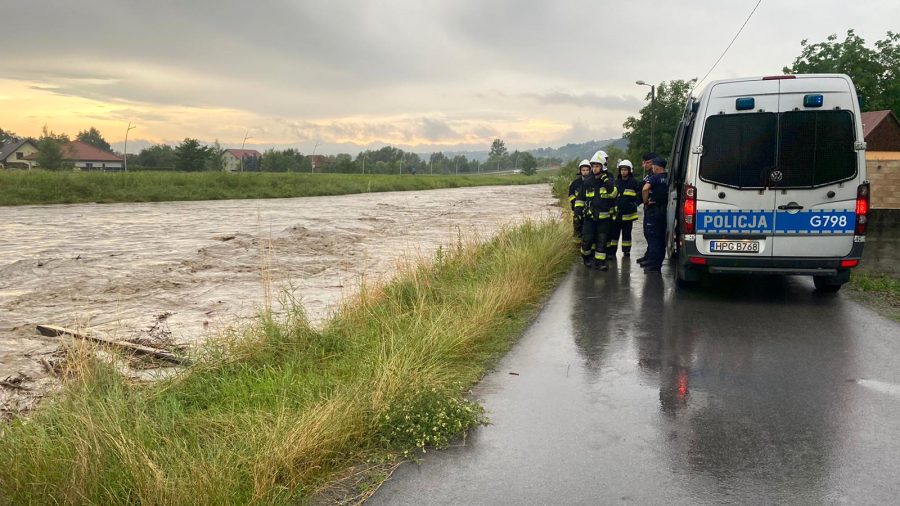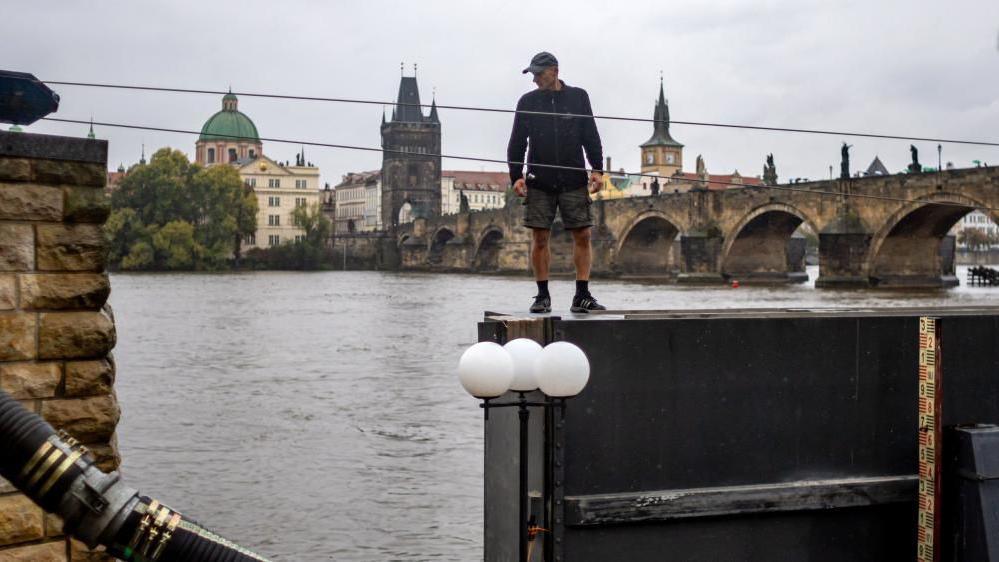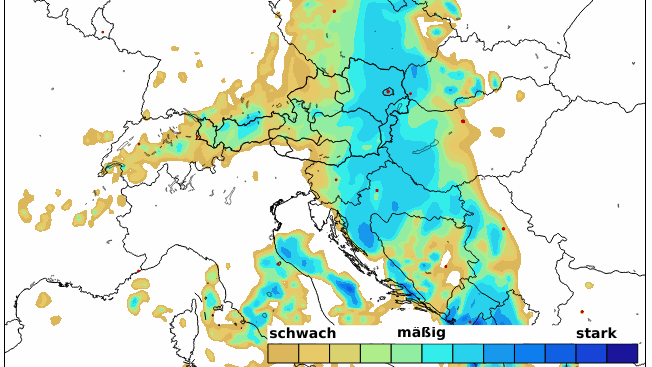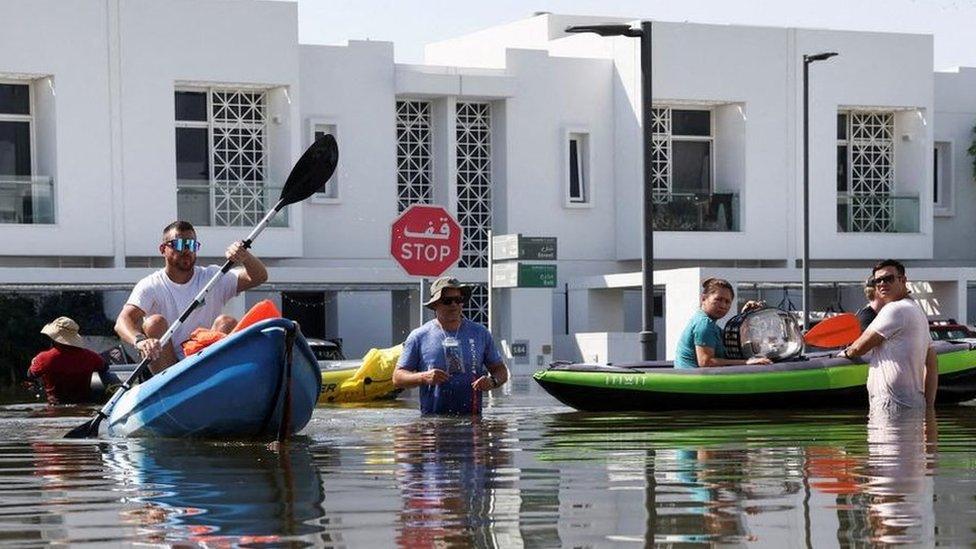Fears of further flood deaths as rain lashes Europe
Floods devastate parts of Romania and Czech Republic
- Published
Romania has set up displacement camps and launched rescue operations after floods killed at least four people and destroyed thousands of homes in the east of the country.
Military boats and planes are being used to move people to safety, and Prime Minister Marcel Ciolacu has said the priority now is to prevent further loss of life.
Recent days have seen torrential rain sweep through central and eastern Europe, swelling rivers and triggering flood warnings in the Czech Republic, Poland, Austria, Slovakia, and Hungary.
The flood barriers in Czech capital Prague have been raised, while in parts of Poland residents have been evacuated.
The four dead people were found in the southeastern Romanian region of Galati during a search and rescue operation, emergency services confirmed to the AFP news agency.
"Dozens of people were rescued from their homes in 19 areas of the country," they added.

Four southern provinces in Poland are among the areas at greatest risk
In Poland, interior minister Tomasz Siemoniak said there was a "difficult situation" in the areas surrounding four rivers.
In the southwest, the River Biala has exceed safe levels by two meters, and there is particular concern about the nearby towns of Morow and Glucholazy.
Glucholazy resident Piotr Jakubiec said he had prepared sandbags and pumps to divert the water but that it was "impossible to predict what's going to happen".
"This is the second time in my life that I've seen such a phenomenon. It's a nightmare for the people who live here," he said.
Another resident, Zofia Owsiaka, said that everyone in the town was "scared" and that there seemed to be "no hope of the rain stopping".
"Of course I'm scared. Water is the most powerful force of nature. Everyone is scared," she said.
In the town of Wroclaw, thousands of residents had to use the staircases of the high-rise blocks because the lifts were shut amid flooding fears, local media reported.
Prime Minister Donald Tusk has sought to reassure the public that the forecasts are "not overly alarming" and that the threat does not extend across the whole country.

Workers in Prague have been closing floodgates on the River Vltava
In the Czech Republic, the highest flood alert had been declared in 38 different locations.
In Prague, flood barriers have been raised, embankments have been closed to the public, and the zoo has been closed.
On Friday morning, a one-metre-thick steel gate was used to close off the so-called Devil's Canal or Certovka, which runs through the city.
The gate is part of a nationwide network of flood defences installed to prevent a repeat of catastrophic damage caused by flooding in 1997 and 2002.
Attention is focused this weekend on central and eastern parts of the country, especially North Moravia, where 50 people lost their lives in 1997.
The Jeseniky mountains could receive some 400mm over the next three days, and that water will then cascade down the River Oder (Odra in Czech) and on towards Poland, passing a number of towns and villages on the way.

The GeoSphere Austria weather map on Friday showed a large band of rain across Central Europe
In Austria, which officials say experienced its hottest August since records began, many regions are expecting 10-20cm of rain in a matter of days. In parts of the north, over 20cm is forecast.
Storm warning centre UWZ said some parts will see previous records for the entire month of September "surpassed in just a few days".
Manuel Kelemen, a forecaster for Puls24 TV, said that "what we're experiencing is extraordinary, if not unprecedented".
Flooding and landslides are also possible, with gale force winds expected in capital Vienna, and heavy snowfall in the west has also caused travel disruption.
Continuous heavy rain is also expected across the border in the German state of Bavaria.
Extreme precipitation is becoming more likely in Europe, as across much of the world, due to climate change.
A warmer atmosphere can hold more moisture, which can lead to heavier rainfall.
